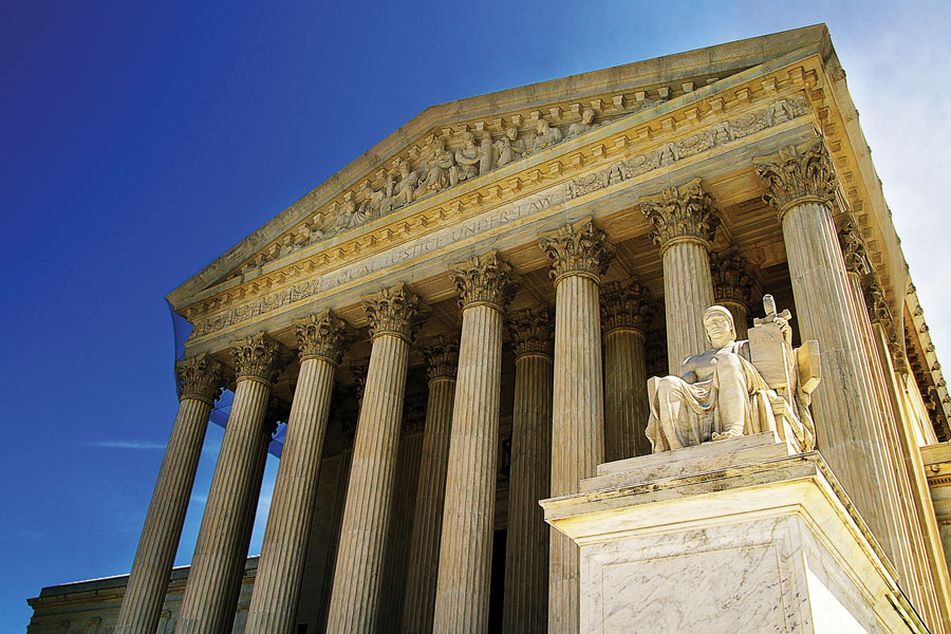SCOTUS may soon decide fate of many 401(k) fee suits

Numerous trade groups and other organizations have been flooding the court with briefs in support of Northwestern University, while at least one group of organizations is against it.
A forthcoming decision by the Supreme Court could either stem the number of retirement-plan fee lawsuits being filed — or it could encourage plaintiffs’ law firms to continue filing them at the fast pace seen in recent years.
In December, the high court will hear arguments in a lawsuit against Northwestern University, which has successfully defeated claims at the district and appellate court levels. The school allegedly breached its fiduciary duty in part by allowing multiple record keepers and hundreds of investment options in the plan.
Numerous trade groups and other entities have been flooding the court with briefs in support of the school, and in at least one instance against it.
The Supreme Court granted the hearing of the case in July, following the appellate court’s decision last year.
The question before the court is whether a plaintiff can adequately bring claims for breach of fiduciary duty based simply on the fact that lower-cost options were available to the plan. Although the 3rd and 8th Circuit Courts of Appeals have found that that alone can be enough, the 7th Circuit, which decided the Northwestern case, found it to be insufficient to state a claim.
Because that’s usually all that plaintiffs in excessive-fee lawsuits have to go on prior to discovery, an affirmation of the decision could make it much more difficult to bring litigation that can survive motions to dismiss or stand good odds of extracting big settlements.
For example, a plaintiff’s law firm can easily compare the investment options in the plan to those in others – claiming that the performance and fee levels indicate a potential breach of fiduciary duty. But they have virtually no window into whether a plan committee followed a diligent process and documented it. Without the ability to explore that through discovery, many potential cases could be dead in the water.
“Over 300 excessive fee lawsuits have been filed in the last five years, with well over $1 billion in settlements and several hundred million in payouts to plaintiffs’ counsel,” a brief from Euclid Fiduciary read. “Last year alone, nearly 100 excessive fee suits were filed, marking a 500% increase from the year before. And an estimated 70% of those cases proceed into discovery. It is now routine … to ‘target a plan that holds abundant assets,’ in the hope of a large settlement.”
Euclid, which provides fiduciary liability insurance, like others in the industry has had to jack up rates and adjust coverage limits as the risk of 401(k) fee litigation exploded.
“The chance for a windfall recovery has spawned hundreds of excessive fee lawsuits over the past five years, already resulting in dozens of meritless claims avoiding dismissal and extracting large settlements,” the Euclid letter to the court read. “The pleading standard should be clarified and further guidance should be given to better equip the lower courts to weed out these claims.”
Numerous other groups have asked the Supreme Court to reaffirm the case for Northwestern University, making it more difficult to bring excessive-fee cases against plan fiduciaries.
The Chamber of Commerce, along with SIFMA and several insurance industry groups, noted that “under ERISA, process is king — ERISA simply requires fiduciaries to use a prudent process for making decisions.”
“This court should provide clear instruction to lower courts that circumstantial allegations in ERISA complaints should be evaluated with the same context-sensitive scrutiny as circumstantial allegations in antitrust or discrimination complaints,” the groups wrote. “ERISA class-action complaints, however, typically include no allegations about process and focus entirely on outcomes that the plaintiffs claim (with 20/20 hindsight) were suboptimal.”
Another group, the American Benefits Council, noted that claims are often made on “an inference of breach from the results achieved by the fiduciaries.”
“And courts, recognizing that plan participants lack complete information about the processes applied by their plan fiduciaries, have permitted plaintiffs to proceed on implication — but only if the results cannot be explained by a prudent process,” the group stated. “It is not enough to allege that a cheaper or better-performing option was available to the fiduciaries.”
The case against Northwestern does not meet that standard, the trade group wrote.
One company that has been at the center of numerous cases brought against 403(b) plan sponsors, TIAA, said that “[a]llowing claims like petitioners’ to go forward would ‘unlock the doors of discovery’ to claims that are all too easy to make,” and consequently lead to settlements, even in meritless cases.
Other groups, including the Investment Company Institute, the American Council on Education and the Committee on Investment of Employee Benefit Assets, also urged the country’s highest court to side with Northwestern.
Yet another group of organizations asked the court to go in the other direction, siding with the plaintiffs and allowing the case to proceed. Denying the claims to go forward would make the pleading standard too difficult for cases with merit, according to the letter from AARP, Better Markets, the Consumer Federation of America, the National Employment Law Project and the Pension Rights Center.
“To state a cause of action based on a breach of fiduciary duty, plaintiffs must plausibly allege that defendants are plan fiduciaries, that defendants breached their fiduciary duties, and that plaintiffs were harmed as a result of the breach,” the groups wrote.
Learn more about reprints and licensing for this article.








